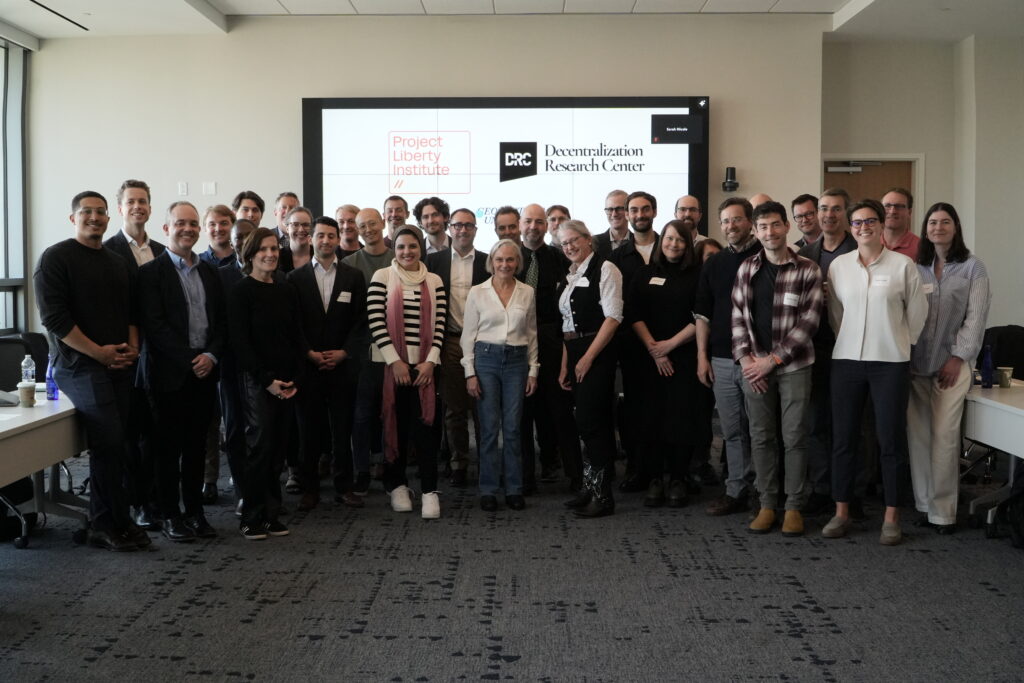Insights from Georgetown’s Workshop

Between October and December 2024, Project Liberty Institute (PLI) and the Decentralization Research Center (DRC) interviewed 16 experts in data governance, the digital economy, and digital rights, uncovering a striking consensus: while data cooperatives hold immense promise, they remain rare and often limited in scale. Cooperatives currently empower 12% of the global population and drive 10% of global employment, yet their potential in the digital realm remains largely untapped.
The current challenge is to translate this legacy into models that address systemic issues in the digital economy, to move beyond theory to build structures that amplify collective bargaining power, enhance data agency, and create viable alternatives to Big Tech’s dominance.
PLI and DRC convened 35 key stakeholders from cooperative leaders to lawyers, technologists, academics, and experts at Georgetown University on April 1, 2025, in a discussion moderated by UC Boulder Assistant Professor Nathan Schneider. The conversation centered on turning the promises of data cooperatives into actionable models, exploring practical implementation, policy frameworks, and cross-sector collaboration to build a more equitable digital economy.
Key Themes and Takeaways
The discussions reinforced the importance of aligning data cooperative models with real-world incentives, existing infrastructures, and evolving digital rights policies to create a fairer data economy.
- Practical Implementation: Moving beyond theory, participants emphasized the need for functional data cooperative models that deliver real-world benefits, showcasing diverse initiatives like B2B co-ops and consumer co-ops, smart contracts automating governance within co-ops, art stewardship co-ops, fiduciaries, etc.
- Cross-Sector Collaboration: The workshop highlighted the importance of partnerships among cooperatives, startups, policymakers, and community organizations, exploring financial co-ops and credit unions as potential foundations. More importantly, a lot has to be done in the realm of awareness-raising and advocacy to those who could turn their businesses into co-ops and those who could be members of co-ops but haven’t because of information asymmetries.
- Policy and Governance: Legal and regulatory frameworks were identified as crucial for scaling data cooperatives, with proposals for data interoperability standards, stronger consumer data rights, and policymaker engagement. Generating momentum around policy paths to make it easy for businesses to become cooperatives was also explored.
Next Steps
Project Liberty Institute and the Decentralization Research Center are now off to developing the final Data Cooperative report, providing actionable guidance for stakeholders building cooperative with use-cases and raising awareness of such models for everyone who can benefit from it to organize with others to protect their data and enhance its value, at such a crucial moment with the rise of generative artificial intelligence. More broadly, this initiative, along with the establishment of the Action Network, aims to foster continued collaboration and advocacy for sustainable, user-centric digital economies.